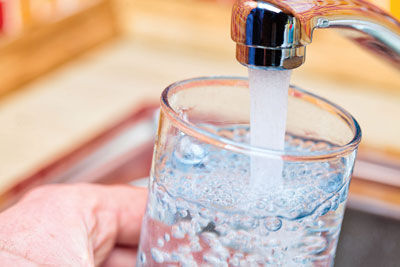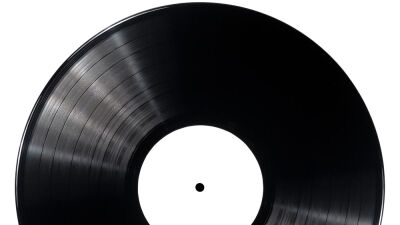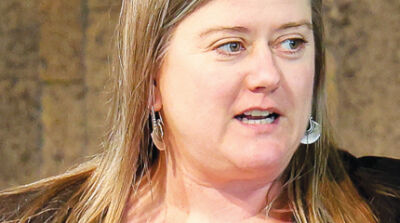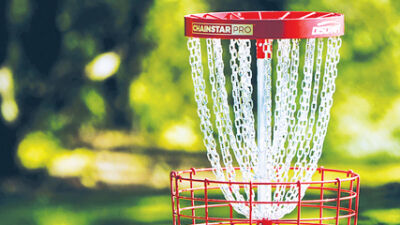EASTPOINTE — During the last week of 2023, the city of Eastpointe issued a public advisory for water customers after several homes in the area with known lead service lines were tested and were found to have high lead levels in their drinking water.
This was the third such advisory since the end of 2022. The advisories each time have followed testing at homes with known lead service lines.
Results of the testing from 61 homes known to have lead water service lines showed that eight of the homes had results over 15 parts per billion, according to a press release sent out by the city.
According to Eastpointe City Manager Mariah Walton, testing was done between July and December 2023.
The Michigan Department of Environment, Great Lakes and Energy evaluates compliance with the action level based on the 90th percentile of all lead and copper results collected in each round of sampling, the press release states. The lead 90th percentile for the city’s water supply is 25 ppb, which exceeds the action level of 15 ppb.
“An action level exceedance means that more than 10% of the homes tested have results over 15 ppb,” the press release states. “The exceedance triggers additional actions including educational outreach to customers, ongoing sampling every six months and service line replacement.”
In compliance with the action level exceedance, the city had already replaced the lead water service lines in seven of the eight homes that had results over 15 ppb and will continue to provide faucet filters, pitcher filters and replacement cartridges to residents, the press release states.
For the current fiscal year, which runs from July 2023 to June 2024, the Eastpointe City Council designated $1 million toward replacing lead lines. According to Walton, the $1 million has already been spent, which brings the city to a total of 805 lines being replaced.
“There’s not a set cost for each line, as each home and water line replacement is different,” she said.
Additionally, last October, the city received a $10 million award from the state of Michigan to continue replacing lead service lines.
“We’ll continue the program once grant agreements are signed and all requirements are completed,” Walton said.
The press release states that the determined action level is a measure of corrosion control effectiveness, not a health-based standard. Lead can enter drinking water when in contact with pipes, solder, interior plumbing, fittings and fixtures that contain lead, an advisory issued by the city states.
Shawn McElmurry, a licensed environmental engineer and professor of environmental engineering at Wayne State University, stated that there are no safe levels of lead in drinking water.
“There is no number that is low enough,” he said. “Particularly if (people) have kids, they need to take precautions to prevent lead exposure in drinking water.”
In addition to using water filters that have been certified by the National Sanitation Foundation — which includes filters by companies such as Brita — residents can advocate that their water utility companies use corrosion control measures.
“There’s some water chemistry that they can adjust to help to minimize the amount of lead that, even if it’s in the pipes or in the fixtures of the homes, it will minimize the amount of lead that dissolves into the water,” he said.
Walton said water provided to the city by the Great Lakes Water Authority does not contain lead; however, orthophosphates are added during the treatment process to create a protective coating in service lines throughout the system.
While lead service lines are a significant issue, McElmurry also emphasized the importance of removing lead fixtures and solder.
“Everybody focuses on lead service lines, and that is certainly a significant issue; however, older homes that have lead solder or fixtures, or older, cheaper fixtures that have lead components in them, can also contribute lead,” he said. “We’ve seen in places where they have taken out lead service lines and residents are still exposed to lead because of solder and lead fixtures in their homes.”
Additionally, if water has been sitting in service lines, McElmurry said residents can “flush” water before using it to help reduce the amount of lead in drinking water, though he noted that it isn’t always effective.
“The longer water sits, the more lead will dissolve into the water, and so flushing the water and not allowing it to dissolve into the solution will reduce the amount of lead,” he said. “Although it’s not going to eliminate it and it’s still kind of like a game of Russian Roulette, you’re still reducing your risk.”
McElmurry said that while the length of time water should be flushed varies depending on the length of the service lines, two minutes is usually long enough.
Eastpointe residents can pick up water filters and replacement cartridges at the Eastpointe Memorial Library, City Hall, and the Department of Public Works and Service offices during operating hours. While they are available for immediate pickup, times can also be scheduled by calling the City Manager’s Office at (586) 204-3032.
 Publication select ▼
Publication select ▼


















